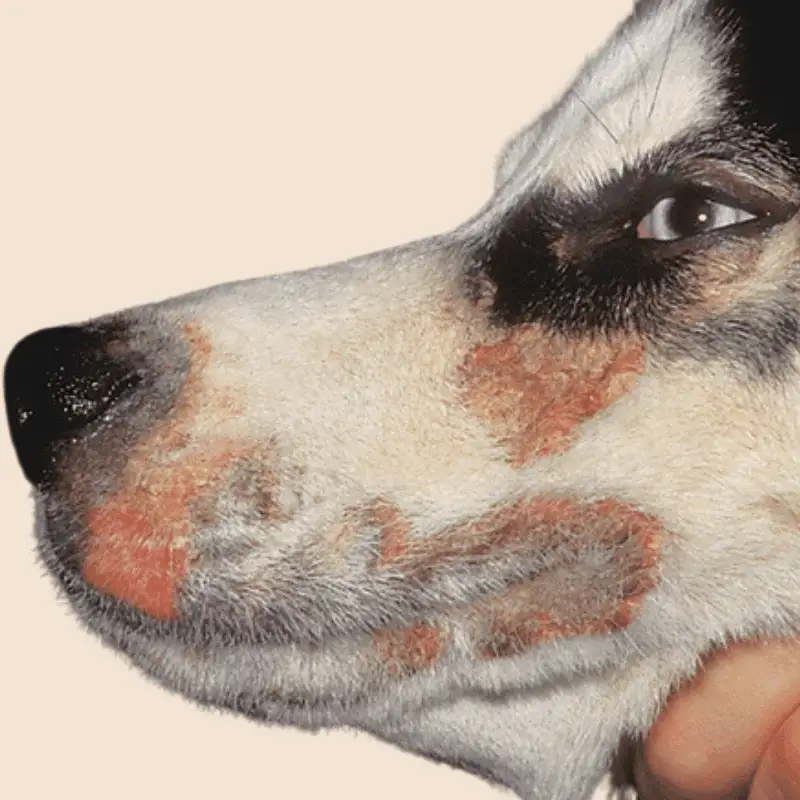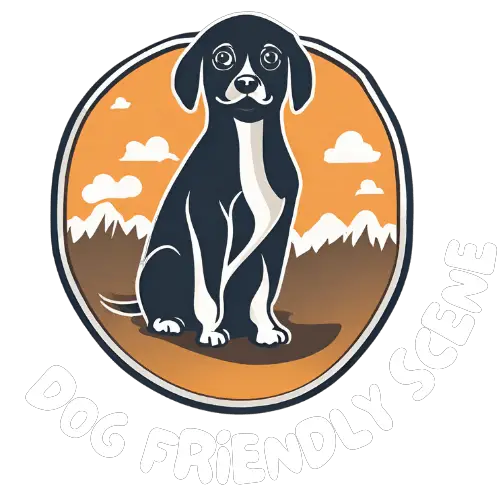The vital importance of the mineral zinc in dogs has been well-established, and this micro mineral helps with many body functions. Let’s find out!
Zinc plays an essential role in a dog’s metabolism. Zinc will carry out vital metabolic processes, such as it helps with thyroid function, DNA synthesis, and brain function. Zinc is also good for the eyes and hair, and it has anti-oxidant properties.
Getting enough zinc in a dog’s diet is essential for maintaining a healthy body. Zinc can be found in a variety of fresh foods.
Zinc can be found in fresh foods such as eggs, red meats and poultry.
Symptoms of Zinc Deficiency in Dogs
If a dog is deficient in zinc through either their poor diet or difficulty in absorbing the mineral, the dog will have symptoms such as Zinc Responsive Dermatosis (ZRD)

Visual Image of Zinc Responsive Dermatosis (ZRD) Source
Location of Symptoms: Dermatologic lesions around the mouth, eyes, elbows, pads
- Reddening of the skin
- Alopecia
- Crusty and thickening of the skin
- Scales
- Sores and weeping
The above can cause infection due to the breakage in the skin and compromised immune system.
Other issues:
- Lack of wanting to mate
- Females will not go into heat season
- Lack of appetite due to the deficiency affecting sense of smell and taste
- Dull coat
- Slow skin healing
Recommended Read: How Long Are Dogs In Season For? (Care guide)
Dog breeds likely to suffer from being unable to absorb zinc:
- Husky Breeds
- Malamutes
Some giant dog breeds are at risk for zinc deficiency. If your dog has a loss of fur or looks sore around the eyes, take them to the vet to get them checked for zinc deficiency.
Recommended Read: Do dogs need fats?
Can I give my dog human zinc supplements?
You shouldn’t ever give supplements made for humans to a dog. A dog will better acquire zinc from its diet. If your dog has trouble absorbing zinc, you need to contact a veterinarian for further advice and a possible supplement route.
How to treat zinc deficiency in dogs?
If a dog is deficient in zinc due to a poor diet, the dog will need to focus the food on a good quality zinc-rich diet. If the dog can not absorb zinc, you will need to contact a veterinarian to discuss the following options for your dog, such as daily supplements or injections of zinc.
Zinc-Rich Foods For Dogs
- Beef
- Broccoli
- Cashews
- Chicken
- Duck
- Eggs
- Oats
- Pumpkin Seeds
- Salmon
- Sardines
- Spinach
Adding boiled chicken treats to your dog’s food can help it get the protein it needs and the mineral zinc.
Do you want to know what vitamins and minerals are required for your dog’s bones and joints? I have written about it so you can learn more.
Conclusion
Zinc is essential for a dog’s body and completes many vital roles.
If you have a giant dog breed, a husky or Malamute breed, be sure to keep in mind that they have the potential not to absorb zinc correctly.
Adding zinc-rich foods to a dog’s diet will give them an added boost, especially if a dog’s commercial dog food doesn’t offer them good quality ingredients, like fresh or pure meat.
A veterinarian should only ever advise zinc supplements. You should not just start giving a dog supplements.
